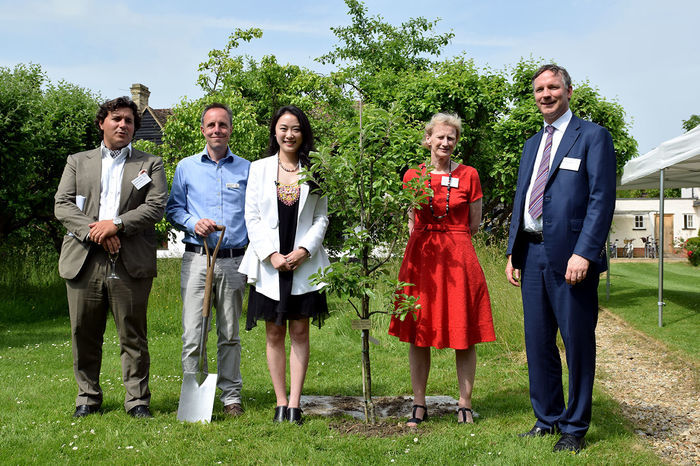Cambridge given millions by Chinese company with military links
The university was found to have links to CASC, a Chinese military company, in a report by UK-China Transparency

The university has taken over £2 million in funding from a Chinese state-owned military aerospace company, known for being one of China’s leading manufacturers of military drones.
This funding was received by the university over the course of four research projects, a report by UK-China Transparency has revealed.
This partnership, between the Beijing Institute of Aerospace Control Devices (BIACD) and Cambridge’s Department of Engineering, the Centre for Advanced Photonics and Electronics (CAPE), has been active since 2014.
The university plans to end this partnership later this month, on the 30th of September. Cambridge will also return £1.2 million of unused funds to BIACD.
CAPE is described on the Cambridge website as “a unique form of joint partnership between the University of Cambridge and a number of strategic companies of international importance in the supply chain for the photonics and electronics industries”.
The BIACD “is involved in the development of fibre optic sensors, satellite communication system and IoT system, used in Chinese smart grid as well as in petroleum, emergency communication and intellectual manufacturing,” CAPE states.
BIACD is an alias, wrote UK-China Transparency, as the company is better known in Chinese as the 13th Institute of the China Aerospace Science and Technology Corporation (CASC).
CASC is described by its English website as being “engaged in the research, design, manufacture, test and launch of space products such as launch vehicle, satellite, manned spaceship, cargo spaceship, deep space explorer and space station as well as strategic and tactical missile systems”.
The US State Department includes the BIACD allies on a list of Chinese military companies, which UK-China Transparency states in the report.
The university’s response to the report stated that Cambridge was aware that CASC has “both civil and defence interests,” but stated that CAPE “only worked with the civil part of BIACD.”
The university’s response also states that “all CAPE projects go through internal university due diligence processes and all projects with BIACD were reviewed for export control compliance before approval.”
“There is no suggestion of illegal activity on the part of the University of Cambridge, CAPE, or any of its affiliated staff,” the report stressed.
 News / Cambridge bus strikes continue into new year16 January 2026
News / Cambridge bus strikes continue into new year16 January 2026 News / Uni members slam ‘totalitarian’ recommendation to stop vet course 15 January 2026
News / Uni members slam ‘totalitarian’ recommendation to stop vet course 15 January 2026 Science / Why smart students keep failing to quit smoking15 January 2026
Science / Why smart students keep failing to quit smoking15 January 2026 Interviews / The Cambridge Cupid: what’s the secret to a great date?14 January 2026
Interviews / The Cambridge Cupid: what’s the secret to a great date?14 January 2026 Comment / Will the town and gown divide ever truly be resolved?12 January 2026
Comment / Will the town and gown divide ever truly be resolved?12 January 2026









